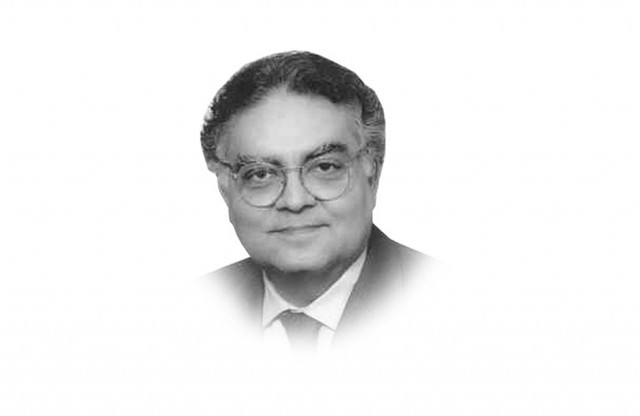Crisis, classes and parties
There is an absence of mass political parties effectively representing interests of workers, peasants, middle classes.

The writer is Distinguished Professor of Economics at Forman Christian College University and Beaconhouse National University
Pakistan’s existing power structure includes the elites that have historically dominated politics and whose interests are embodied in a rent-based institutional structure, which gives them exclusive privileges in the economic and political spheres. The current coalition of elites consists of the military, the bureaucracy, big landlords, industrialists in the large-scale manufacturing sector and large traders. The economy’s institutional structure and the associated conduct of public policy have generated an elite-based economic growth process that has served to extract resources for appropriation in the form of rents by the elite coalition. Consequently, while the elites have enriched themselves, mass poverty and acute inequality persist. With the rich unwilling to pay taxes, the government’s revenues are grossly insufficient. This, combined with bribery infested public sector project management, means that the government is incapable of providing the minimum public services necessary for a dignified life to the majority of the population.
In the face of this crisis, the elite coalition has failed to restructure the political system and the economy to enable open access over both economic and political competition to all citizens: a defining feature of the modern democratic state. There is an absence of mass political parties effectively representing the interests of the workers, peasants and the middle classes. It is not surprising, therefore, that militant extremism and new political entrepreneurs outside the existing political structure find fertile ground in Pakistan. For the former, violence is part of their creed, while the latter claim to eschew violence. Both seek a place in Pakistan’s power structure.
Mr Qadri held, perhaps, the largest public gathering in Lahore in Pakistan’s history and gave notice of leading a long march to Islamabad to form Pakistan’s ‘Tahrir Square’. This, he promises, will be a prelude to a new political and social system that will rid Pakistan of rule by the ‘exploiting classes’ and establish a genuine ‘democratic’ and ‘constitutional’ order. While he assiduously claims peaceful intent, his undertaking is not entirely devoid of the risk of violence. The present crisis is pregnant with the possibility of a mass movement with a radical agenda using the religious narrative of a return to an imagined ‘golden age’. There is also the possibility that some of the mainstream political parties could lose part of their support to such a movement, as the deprived sections of society seek ‘change’.
Antonio Gramsci in his Prison Notebooks provides an insight into the dynamics of the kind of crisis that Pakistan is now facing: “At a certain point in their historical lives, social classes become detached from their traditional parties …When such crises occur, the immediate situation becomes delicate and dangerous, because the field is open for violent solutions, for the activities of unknown forces, represented by charismatic ‘men of destiny’.”
The current form of Pakistan’s democracy is threatened as it enters a new phase of uncertainty, instability and conflict.
Published in The Express Tribune, January 7th, 2013.












COMMENTS
Comments are moderated and generally will be posted if they are on-topic and not abusive.
For more information, please see our Comments FAQ